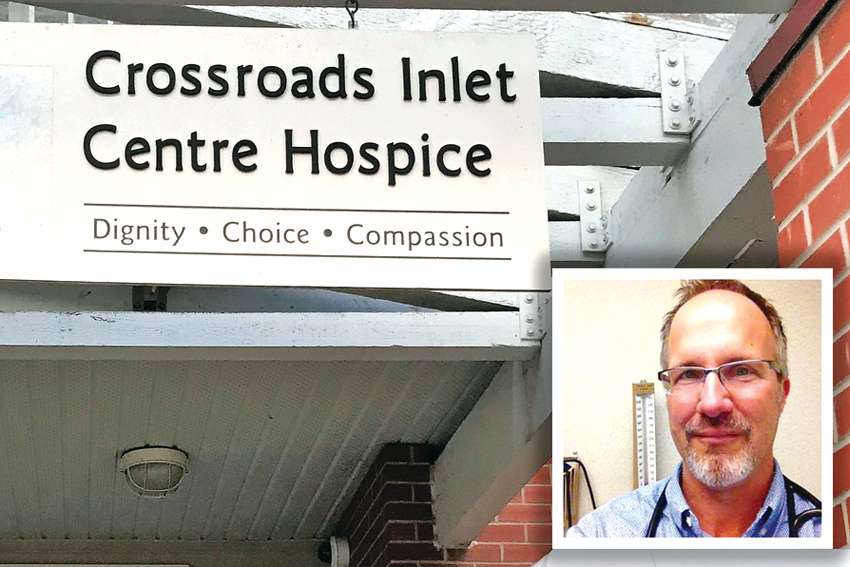Just days after Crossroads Hospice in Port Moody announced Nov. 19 that Sclater was ending his part-time work at the hospice to concentrate on his family practice, he told The B.C. Catholic that another important reason he decided to sever ties with the facility is because he can no longer tolerate the fact euthanasia is taking place there.
“For me, personally, the challenge as a physician working in a hospice — I am obliged to speak to people about MAiD (medical assistance in dying) if they initiate the conversation,” Sclater said. “I can do that so well that people will not know that my personal opinion about MAiD is completely opposed to it.
“And every time I do that, that just takes a little bit out of me.”
He described a relentless process in which he is not only expected to provide details about assisted suicide but is also consistently asked if he will assess patients on their suitability for MAiD, something he just as consistently refuses to do.
“It’s just this ongoing — call it moral distress — that occurs with having to be even included in the MAiD approval” process, said Sclater, who has cared for patients at the hospice since it opened 19 years ago. “I don’t want to have any participation in that process.”
His last day at the hospice will be Dec. 28.
Sclater, 57, has practised family medicine for 31 years. He held a diploma from the American Board of Hospice and Palliative Medicine and now is a Certificant of the Canadian College of Family Physicians with an added competency in palliative care.
Sclater has blogged about his opposition to euthanasia, writing that as a physician he has pledged to do no harm and that he adheres to international standards of palliative care, which preclude hastening a patient’s death.
In 2017 he was one of hundreds of Canadian doctors who signed a document prepared by the Canadian Physicians for Life, the Canadian Federation of Catholic Physicians and the Christian Medical and Dental Society of Canada opposing the expansion of euthanasia.
In 2020, he publicly supported the MAiD to MAD initiative which opposed legislation broadening the availability of assisted suicide to those who were not near death.
Both campaigns failed to sway the Liberal government, which is now on track to enact a provision in March 2023 that will permit doctor-assisted suicide on the sole grounds of mental disorder.
Sclater, an evangelical Christian, said he opposes euthanasia on many levels, including his personal ethics, the palliative care physician relationship “and even from a social perspective.”
Catholic teaching is unequivocal about assisted suicide. The Canadian Conference of Catholic Bishops said in a brief submitted to Parliament in May that the Church explicitly opposes any form of euthanasia and that any expansion of eligibility for assisted suicide “will only serve to erode the respect for the essential dignity of the human person and the common good of society, which must be committed to protecting and safeguarding vulnerable individuals and those without a voice.”
Once Ottawa legalized MAiD in 2016, the Fraser Health Authority, which funds the Crossroads Hospice, moved quickly to ensure that euthanasia was available in all its funded facilities, except those with a religious charter opposing euthanasia. The edict led Neil Hilliard to resign his job as head of the region’s palliative-care program, saying medicalized killing is incompatible with palliative and hospice care.
Sclater agrees.
“I’ve always accepted and embraced the philosophy of palliative care ... about how the goal of palliative care is not to change the path of the natural life, neither to hasten nor to prolong the time to end natural life,” he said.
“So to include Medical Assistance in Dying or, more specifically, physician-assisted suicide into the palliative approach, it really stretches beyond the definition of what palliative care is and what palliative care should be.”


